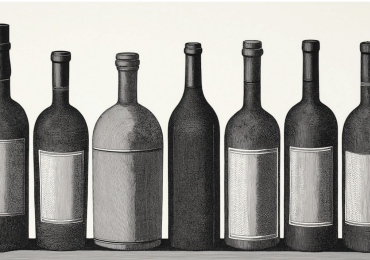When I settle on a topic to write about, I always try to use a simple, familiar reference. This makes my job easier, and it also makes the reader feel more comfortable. So I’ll will stick with this formula, and begin this article by telling a very common, but rather trivial story.
A few weeks ago, my fairly old, but ever-faithful car broke down. Even after extensive consultations with various ‘specialists’ and ‘experts’, the cause of the car’s malaise was still a mystery. In the end, I was offered an expensive procedure and instructed to replace a very costly part. But there was a caveat: there wasn’t a 100% guarantee that this would solve the problem.
Fortunately, I didn’t rush things, and instead took some time to analyze the car’s ‘symptoms’. I went for a second opinion, and consulted another ‘expert’. In retrospect, my unhurried decision was a wise one: in spite of the severe symptoms, the cause of the car’s failure turned out to be so trivial and insignificant, that it cost me next to nothing to repair it(in fact, it only took twenty minutes to fix the car).
This situation probably rings bells with many of you.
I had the same feeling a few days ago when I was listening to speeches pertaining to the Consumer Protection Draft Law in the Georgian Parliament. I listened to this pathos, which assured us that up until now, there was no legislation to protect consumer rights in the country. In other words, previous to this new bill, everything was bad, and consumers had no rights whatsoever they explained. However, tomorrow when the parliament turns this bill into an actual law, things will change for the better.
Those of you who listened to these speeches like me and were thrilled with such pathos, will find the information below very disappointing:
We consumers make dozens of small or relatively large transactions on a daily basis – we purchase products and/or services every day. As such, we’re told that something is missing and that something is not working properly in the sphere of consumer rights protection.
Let’s start with what we are missing – Georgia does not have a Consumer Rights Protection law. That’s because the law was abolished in 2012. However, this is only ‘partially true’, because the old law was canceled and replaced by a more significant and all-encompassing ‘Product Safety and Free Circulation Code’, which not only sets standards for product safety and quality, but also ensures the free circulation of various products, fair competition, and most importantly, product accessibility for the customer.
In 2012, the government of Georgia adopted the Food Safety Code, which sets even stricter standards for everyday consumer goods. Additionally, we have separate laws, decrees and dozens of other documents that regulate labeling and advertising. This legislation also determines the kinds of products that are permitted for sale, and those that are banned. We also have the civil code, which clearly states my rights as a consumer. For instance, if a seller somehow manages to sell me a faulty product, the seller must unconditionally allow the consumer to return the faulty product and provide the consumer a full refund.
If we delve into the legal nuances more deeply, we will discover that the formal status of the aforementioned ‘partial truth’ is actually a lie. Put differently, we the consumers have legal rights, as well as mechanism in place to protect these rights. With the assistance of separate agencies and the consumer ombudsmen, the state exercises control in those directions that are most sensitive, and with relatively smaller competition (such as an energy ombudsman as it relates to energy supply).
Is this enough?
To answer this question, let us first evaluate the rights we have compared with the rights of an average consumer in the European Union.
As you can see, the Georgian consumer enjoys most of the same rights as its European counterpart, which prompts us to ask a perfectly legitimate question: What is it does not work with us?
The answer to this question lies in another question – if something is ‘not working’, then why isn’t it working?
I recently had a conversation with one of my colleagues about this topic. I asked him a simple question: When was the last time your customer rights were violated? He could not remember the exact time, nor could he recall the details of the incident. However, he was convinced that his customer rights were systematically violated at some point. Then I asked him a second question: which government body did he address to complain about the breach of his customer rights?
His answer?
None. He had done nothing to restore his rights. That was the answer.
If you have a car and you don’t know how to drive, does that mean that the problem lies with your car? Or maybe not knowing how to drive automatically means that you cannot own a car?!
The answer to our main question lies here. Even EU citizens do not have a magic wand that restores their customer rights if they are violated. However, the EU consumer has what we call the ‘power of the customer’, which means a well-informed customer, motivated and determined to defend his/her customer rights.
It is important to understand that the power of the customer is not formed by incessantly introducing new laws. Each new law will be just as useless as its predecessor if the law is not exercised.
A couple of months ago I was writing an article about the need to analyze the impact of these regulations. Unfortunately, no one is in a hurry to prepare the necessary legislative framework, and set the system right. However, if there was such a legislative framework, the draft law on the Protection of Consumer Rights would undoubtedly spur many questions. For example: why are we adopting this law, what is not working, why isn’t it working, what would change with the implementation of the new law along with the dozens of codes, laws, orders and other decrees that already exist? All of which basically represent a disorganized and ‘lost in translation’ collection of norms scattered throughout various legal acts. Most importantly, how much would this cost the state, the seller, and ultimately, the customer?
These are not rhetorical questions. Answers to these questions have a price that amounts to five, six and sometimes seven digits. This is the price that we all pay. The absence of answers to such question is at the root of the problem. And this is not just a single case.
I was unable to repair my car until I found the cause of the problem, but I ‘had a chance’ to listen to the ‘experts’ and spend lots of money on experiments.
This is not the right way to solve problems. That’s just not how you do it.
HERE IS A LIST OF THE 10 CORE EU PRINCIPLES FOR CONSUMER PROTECTION:
1. Purchase wherever you wish, whatever you wish (i.e. freedom of choice) – The same applies to the Georgian consumer.
2. If it does not work, return it (the right to return faulty goods) – The same applies to the Georgian consumer.
3. High security standards for consumers’ food and goods – The same applies to the Georgian consumer.
4. Know what you’re eating – The Georgian consumer also has the right to be informed regarding the contents of a product.
5. Contracts should be favorable for the customer – The same applies to the Georgian consumer.
6. Sometimes consumers may even change their mind (the right to return, the product applies only to on-line and street shopping) – This only partially applies to the Georgian consumer only (in cases of street shopping).
7. The facilitation of price comparison – The same applies to the Georgian consumer.
8. Consumers should not get disoriented (misleading advertisements) – The same applies to the Georgian consumer.
9. Protection while you are on holiday – The same applies for the Georgian consumer.
10. Efficient compensation regarding agreements beyond the border – This applies to the Georgian consumer only after the country becomes an EU member.
















